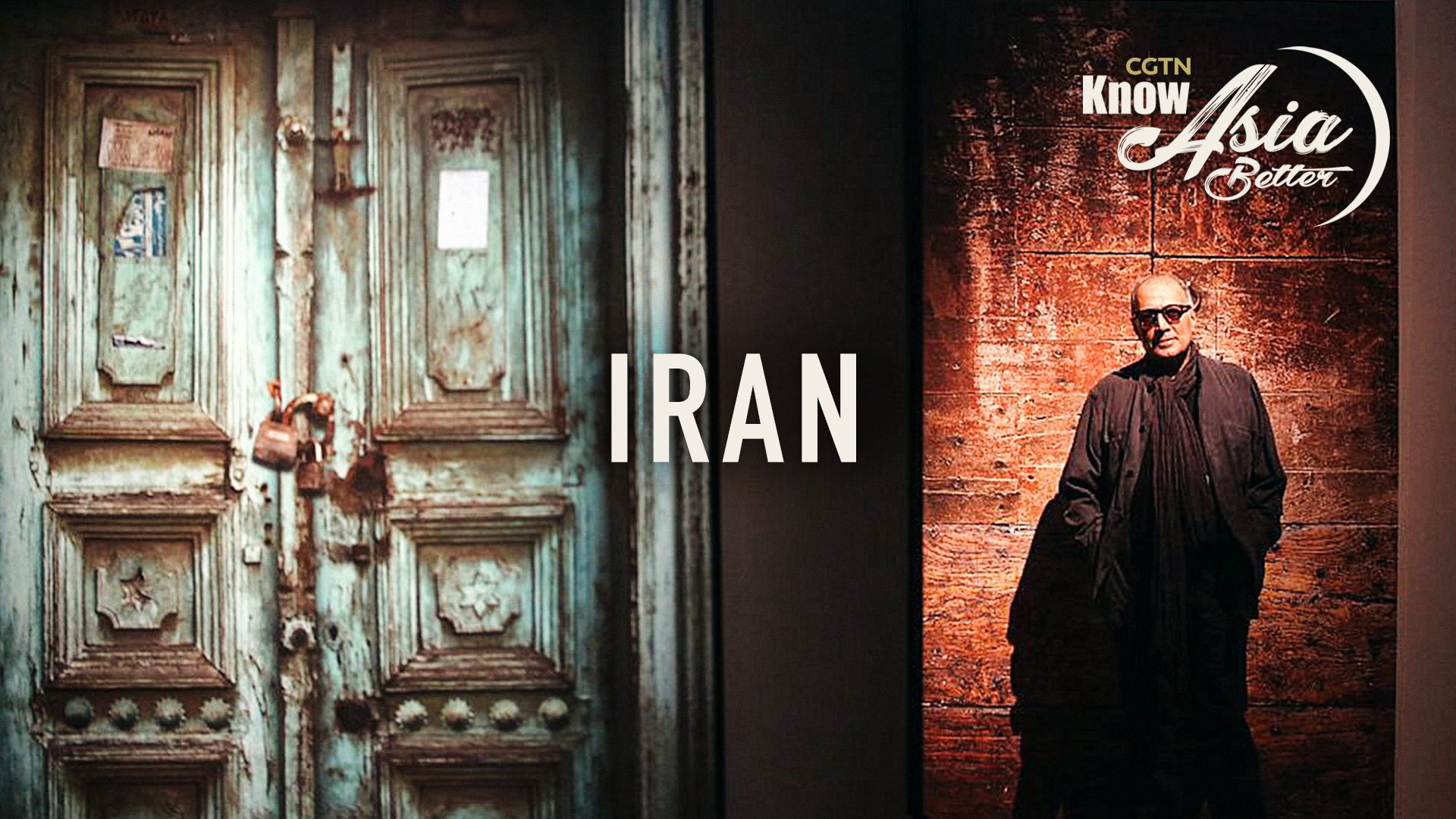To be international, you have to first be local.
- Abbas Kiarostami
In the landscape of Iranian cinema, Abbas Kiarostami (1940-2006) is the most famous name. The master filmmaker, whose works rank among the greatest in film history, is a monument to international cinema.
In the late 1960s, Kiarostami helped to establish the Institute for Intellectual Development of Children and Young Adults in Tehran, which later became one of Iran's most noted film studios, producing countless high-profile titles.
It was at this institute that Kiarostami made his filmmaker debut with "The Bread and Alley" (1970), launching his film career that would last for more than half a century. He rose to prominence on the global stage for his 1987 feature "Where Is the Friend's Home?" which is widely considered as the first installation of his notable "Koker trilogy."
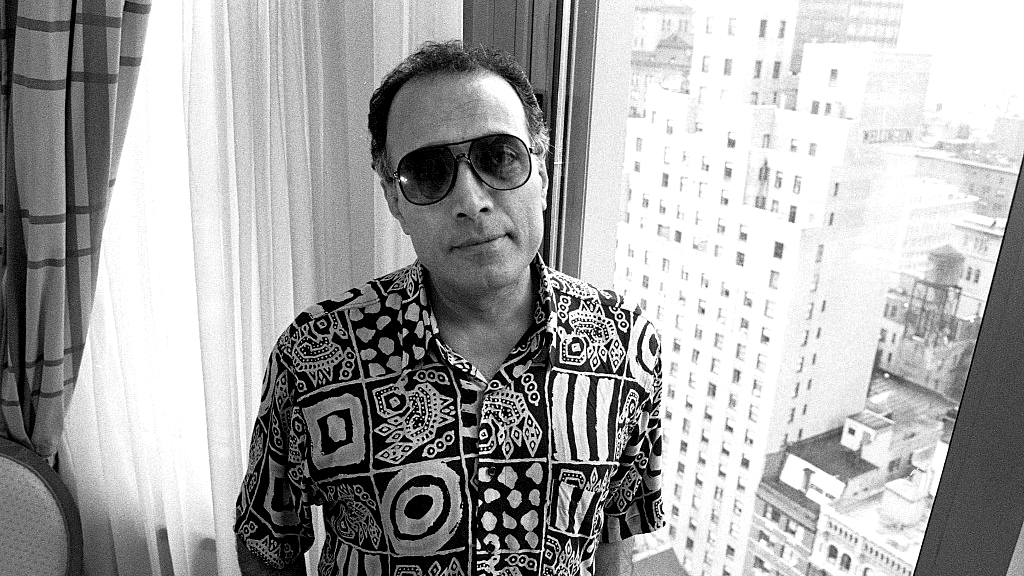
Iranian film director Abbas Kiarostami (1940-2006) poses for a portrait in the 1990s in New York City, New York. /VCG Photo
Iranian film director Abbas Kiarostami (1940-2006) poses for a portrait in the 1990s in New York City, New York. /VCG Photo
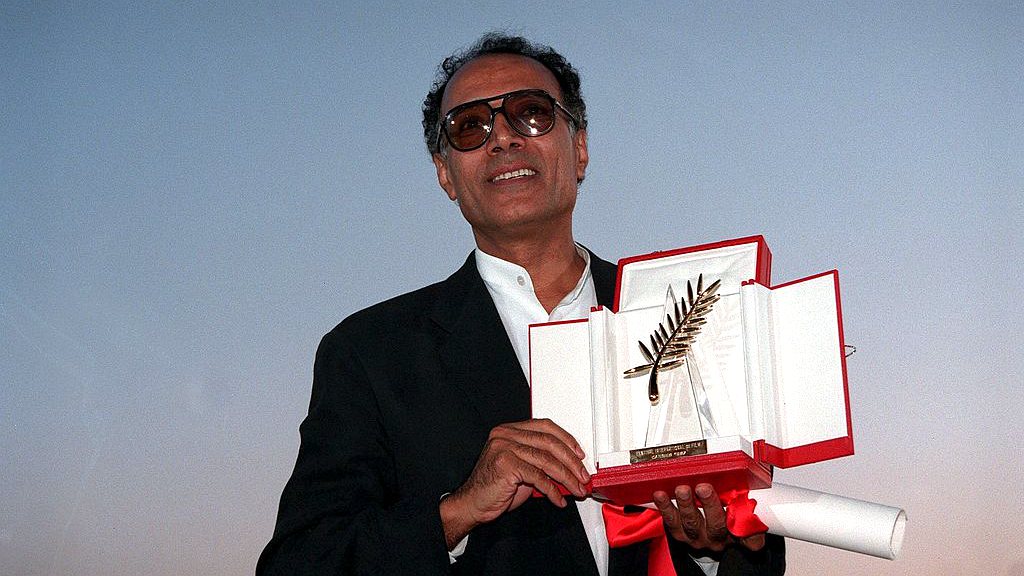
Abbas Kiarostami wins the Palme d'Or for his film "Taste of Cherry" at the Cannes International Film Festival on May 18, 1997, in Cannes, France. /VCG Photo
Abbas Kiarostami wins the Palme d'Or for his film "Taste of Cherry" at the Cannes International Film Festival on May 18, 1997, in Cannes, France. /VCG Photo
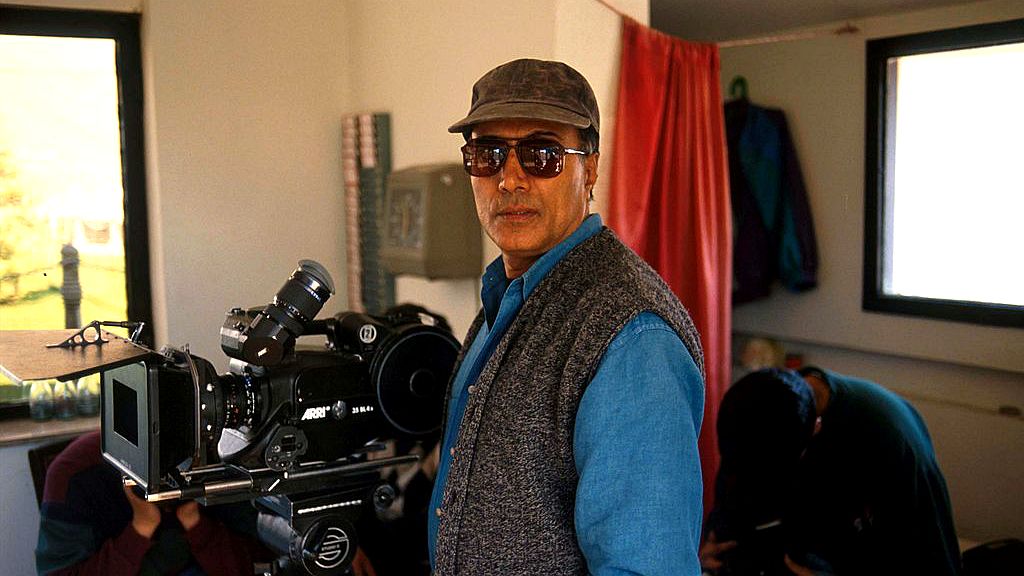
Abbas Kiarostami is seen during a location shoot, October 1, 1996. /VCG Photo
Abbas Kiarostami is seen during a location shoot, October 1, 1996. /VCG Photo
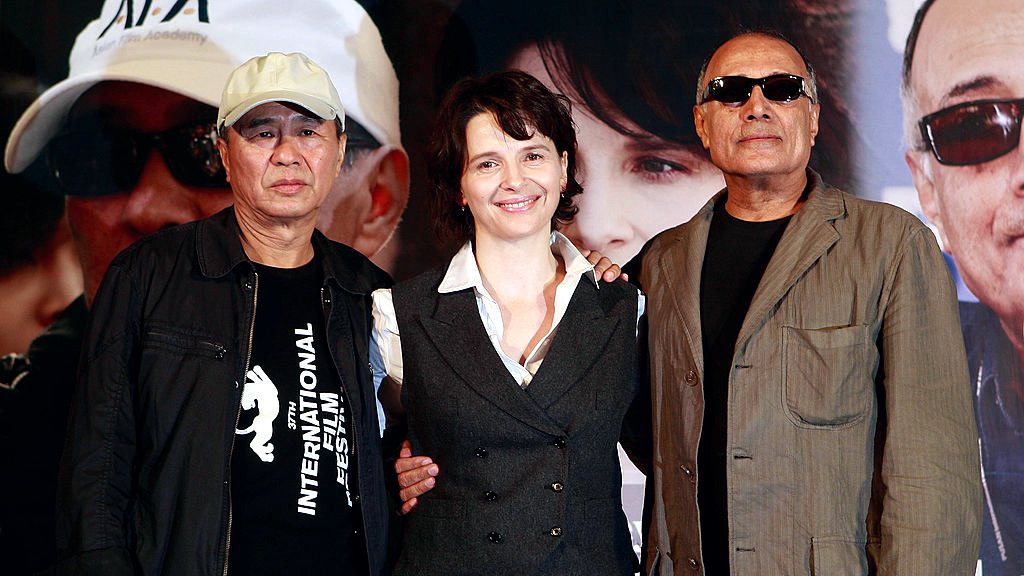
(L-R) Director Hou Hsiao-Hsien, actress Juliette Binoche, director Abbas Kiarostami attend a hand printing ceremony during the 15th Pusan International Film Festival (PIFF) on October 13, 2010, in Pusan, South Korea. /VCG Photo
(L-R) Director Hou Hsiao-Hsien, actress Juliette Binoche, director Abbas Kiarostami attend a hand printing ceremony during the 15th Pusan International Film Festival (PIFF) on October 13, 2010, in Pusan, South Korea. /VCG Photo
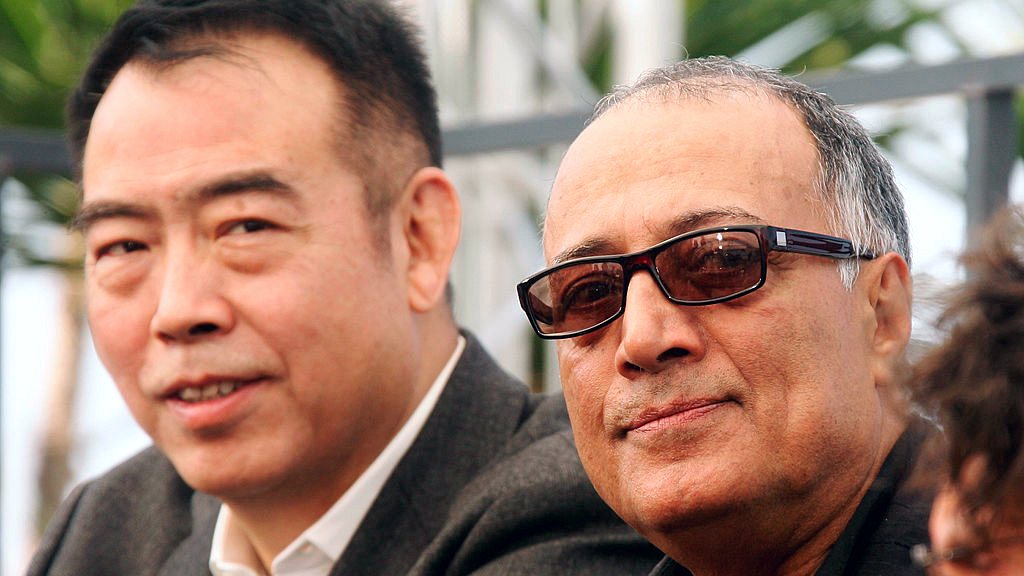
Directors Chen Kaige (L) and Abbas Kiarostami attend a photocall during the 60th Cannes International Film Festival on May 20, 2007, in Cannes, France. /VCG Photo
Directors Chen Kaige (L) and Abbas Kiarostami attend a photocall during the 60th Cannes International Film Festival on May 20, 2007, in Cannes, France. /VCG Photo
Kiarostami was also a poet and photographer. Well-known for his documentary-style narratives, his films feature a balance of realism and poetry. Most of his pieces are set in remote areas in Iran and focused on ordinary people's lives, addressing wide varieties of themes about love, life and death.
With works that are universally admired by cinephiles worldwide and considerably acclaimed by critics, Kiarostami has pocketed dozens of international awards and served as a jury member at numerous prestigious film festivals.
One of his most notable works, the 1997 drama "Taste of Cherry" stunned the world of film at that time with its experimental filming techniques and unique narrative. It was awarded the Palme d'Or – the top prize at the Cannes International Film Festival, marking the first Iranian filmmaker to win this honor. His 1999 film "The Wind Will Carry Us" won the Grand Jury Prize at Venice.
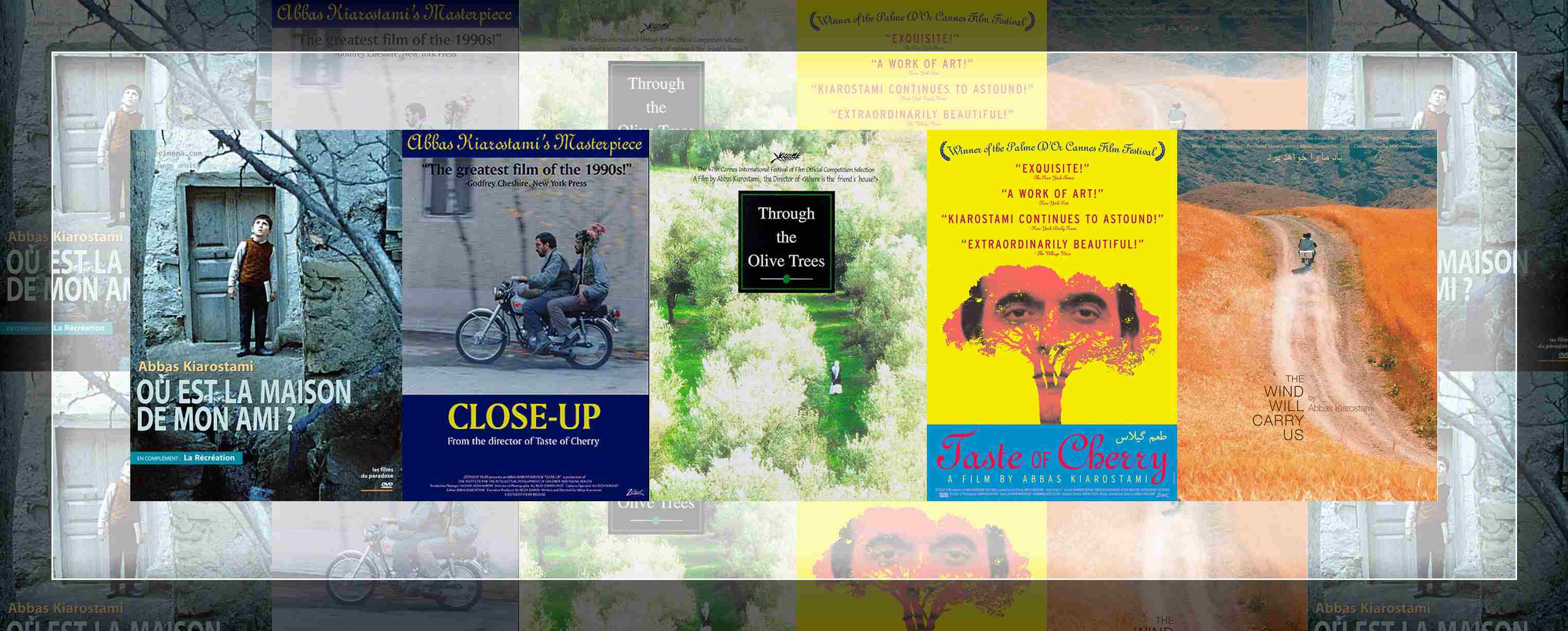
Posters for some of Abbas Kiarostami's most notable films. /Original posters via Douban, designed by Hong Yaobin
Posters for some of Abbas Kiarostami's most notable films. /Original posters via Douban, designed by Hong Yaobin
Kiarostami devoted his entire life to exploring more possibilities for the cinematic arts and developing his unique cinematic style – a blend of simplicity and complexity, blurring the boundary between fiction and non-fiction. The legendary Iranian filmmaker passed away in 2016 in Paris after a long battle with cancer.
Jean-Luc Godard, a pioneer of the French New Wave film movement, once opined: "Cinema begins with D.W. Griffith and ends with Abbas Kiarostami." Oscar-winning director Martin Scorsese said that "Kiarostami represents the highest level of artistry in the cinema."
What are the cultural elements that best represent Asia? Follow CGTN's "Know Asia Better" series to enjoy a glimpse of 47 Asian countries through architecture, art and cultural figures highlighting a diverse Asia that you may not have noticed before.
(Cover image by Fan Chenxiao)

